Women MPs
The Pacific region, not counting Australia, New Zealand, and the French Territories, has the lowest level of women’s political participation in the world. Out of 559 members of parliament in the 15 countries* covered by UNDP, there are only 48 female members (8.6% of all MPs; the global average being 23.8%). The Republic of Marshall Islands has had a female Head of State (President Hilda Heine) from January 2016 – January 2020, and Samoa had a female Deputy Prime Minister (Hon Fiame Naomi Mataafa) during the same period. In May 2021, following the general elections in Samoa, Fiame Mata’afa’s political party F.A.S.T successfully secured 26 of the 50 seats in Parliament, with her poised as the first female Prime Minister of Samoa.
The extremely low level of women’s representation in Pacific legislatures is a critical challenge for democracy, gender equality and the sustainable development of the region. At local governance level, women’s representation is similarly low.
Of the four countries in the world with no women MPs, three are in the Pacific (Vanuatu, Federated States of Micronesia, and Papua New Guinea). In the last decade, significant resources have been dedicated to programmes aimed at increasing women’s political leadership but progress has been slow, and in some cases, non-existent (FSM) or it has declined (PNG, Vanuatu). Innovative and transformative approaches, such as establishing of the male advocates for women in politics network, are needed, as well as sustained support for work across the electoral cycle to support women’s participation and build resilience.
* The 15 Pacific Island Countries covered by UNDP include: Cook Islands, Federated States of Micronesia, Fiji, Kiribati, Nauru, Niue, Palau, Papua New Guinea, Republic of Marshall Islands, Samoa, Solomon Islands, Tokelau, Tonga, Tuvalu, Vanuatu

